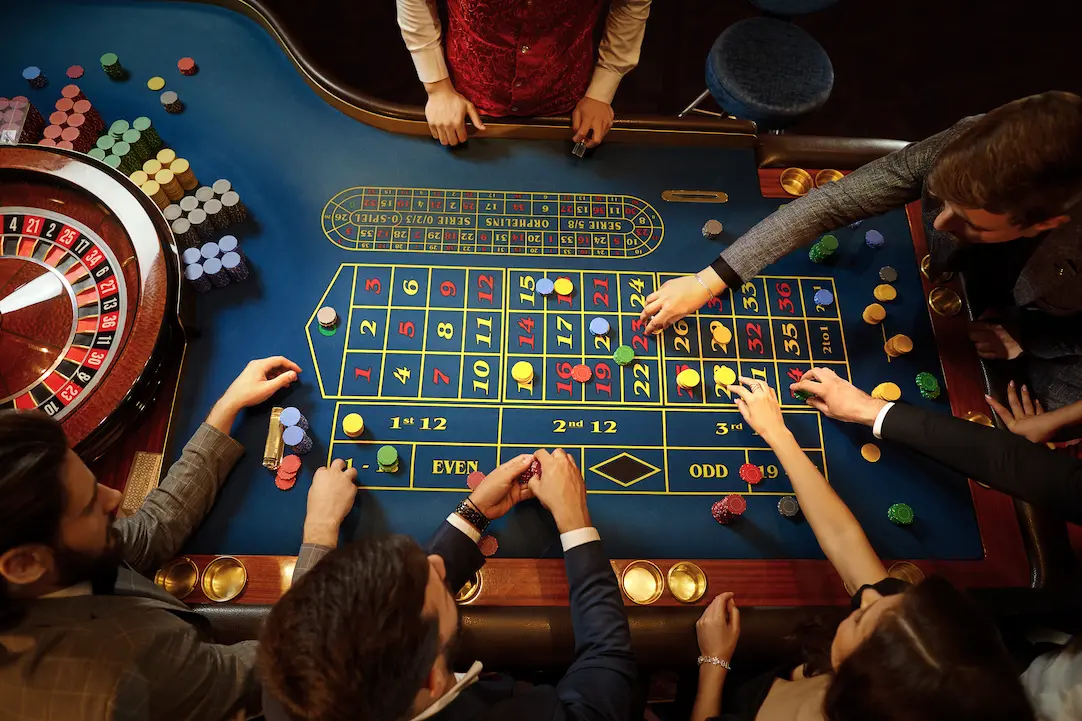In all life situations, a person relies on luck and their own knowledge. It does not matter what kind of choice they have to make – buying goods at the market, lottery or choosing a number in the roulette game. So what should you do to guess the winning combination? Some people believe in the sixth sense; some try to think logically and choose the number and bets with the aid of mathematical calculations and modern technical devices. What is the strategy for a successful game? We will try to find the answer to this question.
Bets and odds

No one knows for sure in which century and in which circumstances the roulette game has been created, but everyone knows that to this day, it is the most unpredictable game of chance, including the online version of roulette. A traditional roulette requires special equipment – a wheel, divided into 37 sectors with numbers. The way numbers are arranged in red or black sectors does not have a specific reason – there are no progressions and interdependencies in their order. The zero sector also remains unchanged – it is always coloured green.
The purpose of this game is to predict where the small ball, rolled by the dealer, will land. Each player chooses their own number and decides the colour of the sector by themselves. Bets can be placed as follows:
- What will the colour of the sector be and its number
- In which range (the first dozen is from 1 to 12, second – from 13 to 24 and so on) will the ball land
- What will the two nearby segments be
- The combination of adjacent numbers
The winning odds depend on the type of bet, the minimal coefficient is 1:1, and the maximum one is possible only when betting on a number, i.e. the player decides the colour and number of the sector. The zero sector can be a winning one only when a bet was placed on zero, two or three numbers in a mandatory green sector. In all other cases, the zero sector is not playing.
Methods of analysis
Throughout the centuries-old history of the game, people have constantly developed their own methods of predicting numbers and offered a variety of patterns on how the ball lands.
To make up your strategy, you need not only to constantly play yourself and carefully observe others but also to have a certain knowledge of mathematics, understand the theory of numbers, be able to process the data obtained correctly (for example, using computer programs), as well as keep quantitative records of all the wins and losses.
Readme! To collect the primary data for analysis, it is necessary to observe your own game as well as the combinations of other participants.
A one-off game is not an indicator of how successful or unsuccessful a strategy is. The data obtained over a certain time period should be justified using the mathematical formulas available or subject to computer processing in order to obtain appropriate computations. Nominal rational calculations have the greatest credibility among players and experts studying roulette and are most often used to build winning strategies.
The development of computer technology entails the appearance of different programs and technical devices, without which a modern-day person could barely get through the day. Just by using a smartphone, one can buy an apartment, order pizza, talk to a person who is located on the other end of the country, or win a large sum of money at the roulette. Gambling experts that develop a successful winning strategy use the calculation capabilities of computers to the fullest: new theories, applications and websites which analyse and calculate the behaviour of the roulette ball appear regularly. As an example, we can name a few of these programs:
- “Roulette Pattern Finder for Outside Bets”: This is an application by an Australian developer that can identify regularities in your actions. The user can see the templates of the strategies expected to be successful, depending on the number and size of their own bets. Available to download on a smartphone.
- “Classic Gardner”: This program analyses the roulette by simple chances: high/low, even/odd, red/black. To gain access to a game scheme and further instructions, all the user has to do is enter the combinations on the table.
- “Spin Magnit”: This is a roulette tool with good tech support, which allows you to share your gaming systems and successes with other users of the program.
Any computer program essentially represents an algorithm of actions based on the theory of number probability and collecting statistical data, i.e. it is a digital implementation of a systematic game on the specific roulette. Most online casinos offer their new users some bonus money and free access to all features for a few days, which allows you to test your own theories and mathematical calculations of the roulette game in full without investing your money.
Successful Game strategies

All existing variants of the roulette game can be conveniently classified into two large groups: first, the prediction of numbers, colours and their combinations, i.e. what to bet on, and second, the prediction of the bet, i.e., how much to bet.
Most modern strategies suggest choosing several (at least 12) segments at once. Playing with the size of the bet, and not with its value, you can raise the chances of winning because, according to probability theory, it is easier to predict a 1:1 or 1:2 win than 1:17 or 1:35. Using this method, the player will sooner or later predict the right combination, and his winnings will cover for the unsuccessful bets and bring substantial profit. Such strategies require a substantial effort from the player – the number of spins is unlimited, so it is very important to remain patient and have enough money for multiple bets. Despite all the complexity and length, the player can fully enjoy the process of the game and use a variety of combinations and methods of winning.
The “Martingale” system is simple and can rightly be called effective. According to this system, the player has to double the bet after each loss if the bet was placed on even odds. After several increases, the player will recoup his investments several times when the ball finally lands on the desired number. Interestingly, many casinos limit the number of bets, thereby preventing the player from constantly doubling them. It can be assumed that this scheme can lead to a big win and the roulette organisers know this.
The next technique that gained a reputation of a successful one is “Freddie” – the triangular system is designed to make a profit from simple chances. The first bet is a bet on equal odds, and the bet size is the first number at the top of the triangle. You need to start exactly from the top of the triangle and always put on one value, for example, on black. If you do win, the next bet should be selected from the same row on the right side; if you do not, you need to select the row below, the first number from left to right. This method is suitable for keen players since in case of a loss (mathematically, a loss in this method is justified – the game ends when the bet of the bottom row is not being played and there are no more rows), you lose a minimal amount of money.
Thinking logically about the roulette system, many experts agree that no successful strategy guarantees victory today. The fact that the number of places where you can play roulette keeps increasing, but only a few win large sums of money proves this point. Historically, most often, a significant profit is won by someone who played for fun, was not afraid to lose and made unexpected risky moves. Such an approach to games of chance is valuable; it helps the player relax and look at the roulette with a fresh pair of eyes. But you should not rule out scientifically unsound ways of choosing the combinations, the so-called “lucky numbers”. Remember that these numbers are different for every person, and you should not thoughtlessly copy the bets of other players, as you may lose everything if you take the risk.
He/Him
19
349 articlesKristaps is an expert in the field of online casinos. Since the age of 20, he has been interested in casino games; poker and blackjack are his favorites. Thanks to his studies and work experience, he has found himself a gambling critic and analyst. He likes to share his own authentic experience with the audience, so his articles are very informative. Kristaps' lifelong dream is to participate in a poker tournament in Las Vegas.
Nationality
latvian
Lives In
Latvia
University
University of Latvia
Degree
International Marketing and Advertising
More info on Kristaps Gauja






 kristaps.gauja@casinobaltics.com
kristaps.gauja@casinobaltics.com 
